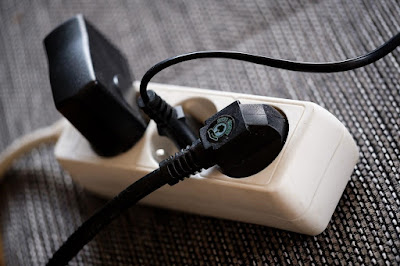
We have electronic gadgets all over our offices and houses, including smartphones, tablets, desktops, televisions, and game consoles. Using multiple gadgets at the same time is challenging as there is always a shortage of power outlets. In such cases,
power strips offer a logical solution for giving yourself more outlets, so you don't need to overload outlet space and protect your gear.
However, not all power strips are as good as each other, and selecting the best relies on some decision-making. Today, we're going to take you through five crucial steps in choosing the best power strip for you.
1. Assess Your Needs

The first thing you need to do is assess your specific demands and step into the world of power strips. Think about the number of devices that have to be powered for one second. Or that you wish to power a more robust unit that consists of a desktop computer, printer, and gaming console along with your smartphone and laptop.
Depending on your needs and demands, you may need a power strip with a greater capacity, like a
20 Amp power strip for running heavy loads and even power-hungry devices. Evaluate your needs first, then select how many outlets you need and what maximum capacity is on your power strip
2. Evaluate Outlets and Spacing
The number and type of outlets on a power strip are extremely important to its operation. Count the number of devices you need to connect, taking into account any that require large plugs or adapters. You can use this number to calculate how many outlets you need on your power strip.
Also, consider the distance between the outlets. Some power strips have outlets that are widely spaced apart or are even movable so that they can accept bigger plugs without obstructing nearby sockets. This is particularly helpful for equipment that tends to take up more room, such as transformers or power bricks.
Consider the variety of outlets as well. Some power strips include both USB connections and regular AC outlets. You may use the power strip's built-in USB connections to charge your smartphones, tablets, and other USB-powered gadgets, freeing up AC outlets for other devices.
3. Prioritize Surge Protection

Surge protection is one of the most important qualities to look for in a power strip. Lightning strikes, changes in the power system, or even the on-and-off cycles of major equipment like refrigerators or air conditioners can cause electrical surges and voltage spikes. These surges can seriously harm your electrical gadgets and leave them worthless.
Surge protection integrated into a power strip serves as a barrier, absorbing excess voltage and keeping it from getting to your gadgets. Look for power strips that are designated as surge suppressors or protectors on the packaging. They frequently have indication lights that let you know whether the surge protection is still in effect.
Consider the power strip's Joules rating when thinking about surge protection. A unit of measurement for energy absorption is the joule. The power strip can withstand more powerful surges if it has a higher Joules rating.
A power strip with a Joules rating of at least 600–1000 should be sufficient for the majority of residential and office settings. However, choosing a higher Joules rating is advised for maximum protection in locations vulnerable to frequent electrical storms.
4. Explore Additional Features

A power strip's primary purpose is to provide more outlets, but many models also come with extra features that improve use and safety. Think about the following add-ons while making your decision:
a. Individual on/Off Switches
Power strips with independent on/off switches for each outlet give you more control over your devices. With this capability, you can turn off particular devices without unplugging them, conserving power and lowering standby power usage.
b. Cord Length
For practical placement, the power strip's cord length is crucial. Make sure the cord is long enough to comfortably reach the closest outlet. Longer cords provide you greater freedom to place your power strip and may do away with the need for extension cords.
c. Wall-Mounting Options
Think about a power strip with wall-mounting capabilities for a clutter-free setup. With the power strip off the floor and out of the way, you can attach it to a wall or place it beneath a desk using this method.
5. Prioritize Safety and Certification

When selecting an outlet strip, the number one consideration should always be safety. The following factors should be considered while selecting a product to ensure safety and dependability:
a. Accreditations
Check the safety credentials of repute like ETL (Intertek) or UL (Underwriters'Underwriters' Lab). The certificates indicate that the surge protector is tested, performs well, and meets certain high-performance and safety criteria.
b. Protection from Overcurrent
There are power strips equipped with over-current protection that can be resettable, often supplied by fuses/circuit breakers. This feature automatically cuts out power if there's an overload, preventing devices from overheating and reducing the risk of electrical fires.
c. Fire-Resistant Housing
It's not guaranteed to put out every source of fire completely, but having a surge-protected outlet in fire-resistant housing will limit and suppress the fire, making it safer at your home or workplace.
Bottomline
Before you choose a power strip to wire your home or office, consider the following criteria: the number and style of plugs, surge protection, wattages, energy efficiency, and safety measures.
Options like angle holders and wall mounts can help you save on room, while customer reviews and brand reputations ensure your purchase is top-notch. By considering these points, you determine the best power strip to efficiently and safely provide all your home or office equipment with the needed electricity.




















 Ross is known as the Pambansang Blogger ng Pilipinas - An Information and Communication Technology (ICT) Professional by profession and a Social Media Evangelist by heart.
Ross is known as the Pambansang Blogger ng Pilipinas - An Information and Communication Technology (ICT) Professional by profession and a Social Media Evangelist by heart.











